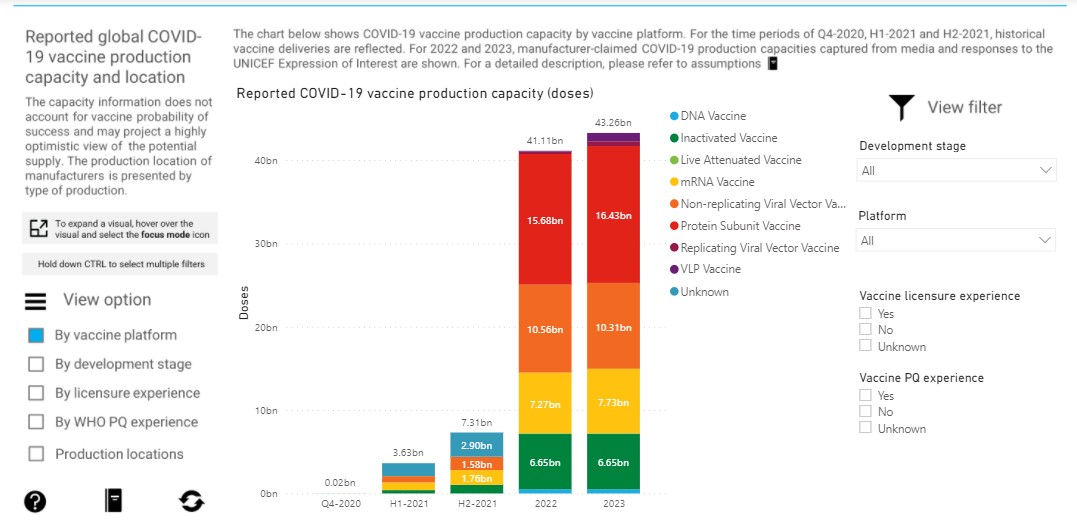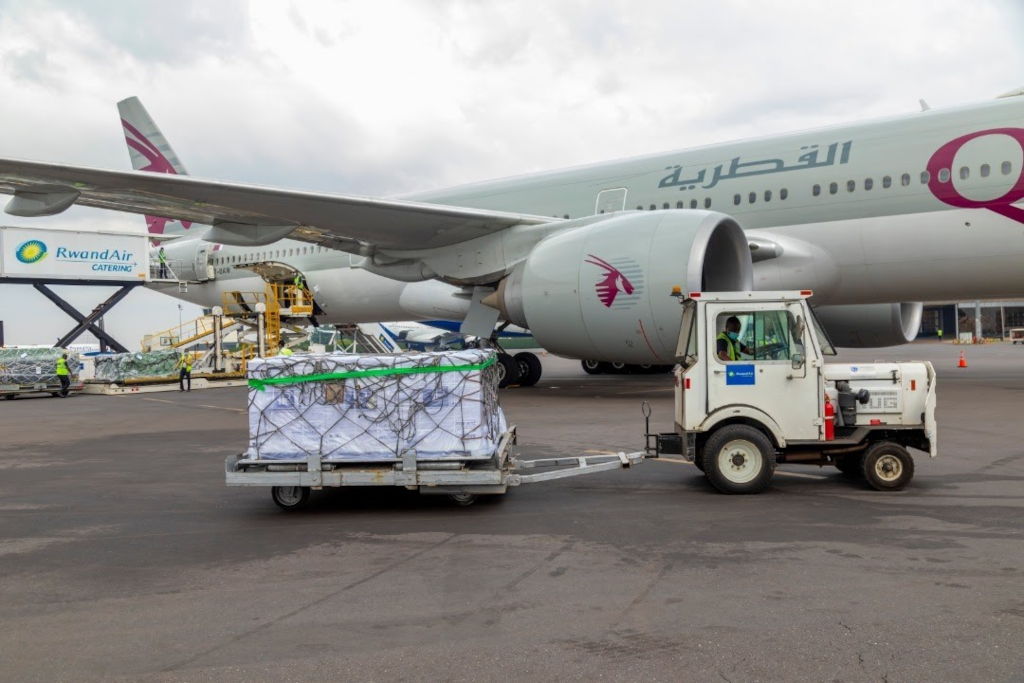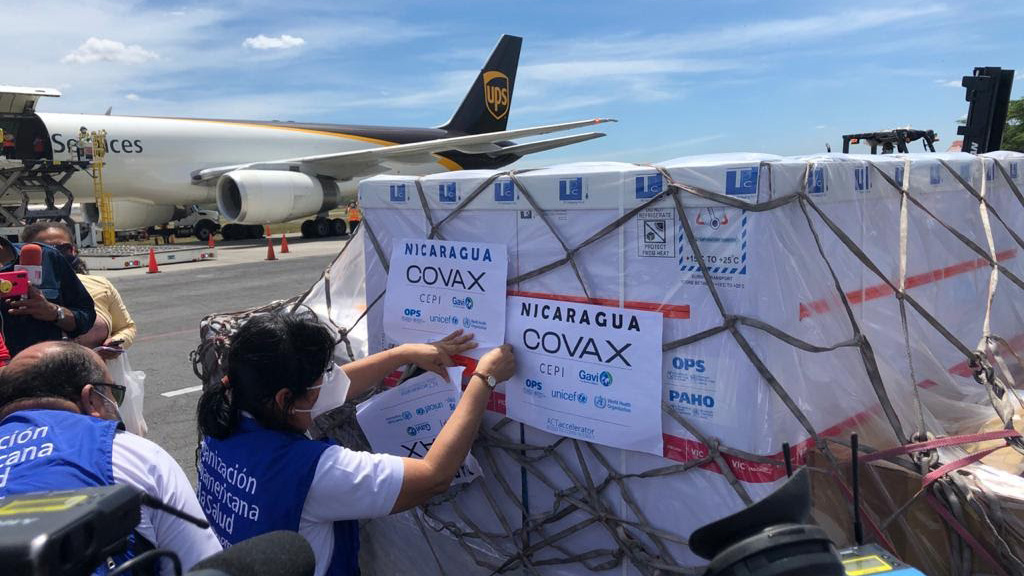The global effort to ensure equitable access to COVID-19 vaccination has reached a major milestone: with the latest series of shipments dispatched to Nigeria, Rwanda, Tajikistan and Bangladesh, COVAX is half way to hitting the target of 2 billion doses.
COVAX was established by the WHO, CEPI and GAVI, to deliver enough vaccines to vaccinate 20% of people in low- and middle-income countries. These doses are primarily offered to healthcare workers and those in high-risk groups.
The COVID-19 vaccine market dashboard shows that just over 1 billion doses have now been sent to 144 countries. There is more to come: 2.8 billion doses have been secured through donations and funded agreements, while future supply deals with manufacturers are expected to deliver almost 18 billion doses in total.
‘Over the course of just one year, a global mechanism set up during an unprecedented pandemic has delivered its first billion doses of vaccine – to the majority of the countries in the world,’ said Dr Seth Berkley, CEO of the GAVI alliance. ‘I am proud that nearly 90% of the first billion doses COVAX has delivered have been fully-funded doses sent to the low and lower-middle countries supported by the GAVI COVAX Advance Market Commitment (AMC): made possible thanks to more than US$ 10 billion in donor contributions to GAVI.’
Globally, almost 10 billion doses have been administered, but just 10% of these have gone to people in low-income countries. Rich countries have faced criticism for offering third doses to citizens before people in some other countries have had their first.

COVAX has gained significant momentum in recent months as manufacturing capacity has increased and the number of approved vaccines grows. In addition, political will and public support behind equitable access has increased, with the emergence of new SARS-CoV-2 variants a reminder that ‘no one is safe, unless everyone is safe’.
A major surge in the global availability of COVID-19 vaccines is expected in 2022 and 2023. A large expansion in the number of doses of mRNA vaccines is anticipated, with even larger numbers of viral vector vaccines and protein submit vaccines becoming available.
As vaccine supplies grow, the COVAX Humanitarian Buffer has been launched to help protect some of the most vulnerable populations in the world, including refugees, undocumented migrants and those living in warzones.

Imperfect progress
While 1 billion vaccine doses have now been shipped, this has not translated directly into 1 billion doses administered. Countries receiving COVID-19 vaccines have faced logistical challenges arising from the need to store and transport vaccines at low temperatures (an issue that has also arisen in rich countries). And, as in wealthy nations, vaccine scepticism can also be a factor.
The EU, the largest donor of vaccines, has come under fire for donating vaccines that are close to their expiry date. CEPI, a partner in the COVAX facility, recently highlighted the urgent need to minimise vaccine waste. However, Gavi notes that lower-income countries are allowing far fewer COVID-19 doses to expire than weather nations.

‘Our work is far from done,’ said Dr Berkley. ‘Inequality in vaccination is enormous with 41% of the world not yet vaccinated with even one dose. As the pandemic continues to evolve, we will double our efforts to close the vaccine equity gap.’
He said the focus in 2022 will be to make sure lower-income countries are able to access variant-adapted vaccines, boosters or additional doses as needed. ‘COVAX will be focusing on supporting lower-income countries’ vaccination objectives – that means also raising money to ensure tailored support for preparedness and delivery, particularly for the highest-risk countries, to increase their ability to absorb the doses delivered as rapidly as possible.’ Dr Berkley said.
Despite the ongoing challenges of producing, transporting and administering vaccines to people around the world, COVAX’s shipping of 1 billion doses of COVID-19 vaccine remains a cause for celebration.
With each dose, the world gets a little closer to the end of the COVID-19 pandemic.



